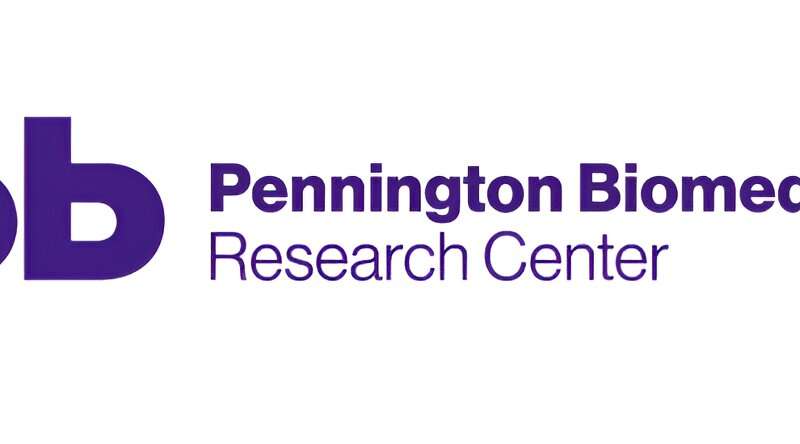Pennington Biomedical Experts Available to Speak on Childhood Obesity Research Efforts and Programs

BATON ROUGE—September is National Childhood Obesity Awareness Month in the United States, as recognized by the Centers for Disease Control and Prevention. The Pennington Biomedical Research Center is at the forefront of researching treatments for obesity, diabetes and other obesity-related chronic diseases, and that is especially true for the work being done to combat childhood obesity.
"At Pennington Biomedical, we put science to work for a healthier Louisiana," said Dr. John Kirwan, executive director of Pennington Biomedical. "Our mission is to discover the triggers of chronic disease through innovative research that improves health across the lifespan. And for the future of our state, there is no population more important than our youth."
From researching and developing scientifically proven obesity treatment and prevention programs to studying environmental factors such as access to healthy food choices and to community parks and playgrounds, Pennington Biomedical scientists are studying all factors of childhood obesity from pregnancy to adolescence and beyond.
The following experts from Pennington Biomedical are available to speak on the different aspects of their research and findings throughout National Childhood Obesity Awareness Month. Please contact Ernie Ballard (ernie.ballard@pbrc.edu) or Joe Coussan (joe.coussan@pbrc.edu) in Pennington Biomedical's Office of Communications and Marketing to set up interviews. The list will be updated throughout the month as well at https://www.pbrc.edu/news/media/2023/childhoodobesityexperts.aspx.
Stephanie T. Broyles, Ph.D., Associate Professor, Contextual Risk Factors
Expertise: How the different contexts in which we live—e.g., neighborhood, work, parks, social networks—shape our disease risks and health outcomes
Email: Stephanie.broyles@pbrc.edu
Alyssa Button, Ph.D., Postdoctoral Research Fellow in Pediatric Obesity and Health Behavior
Expertise: Intensive health behavior lifestyle treatments and family weight management programs for child obesity
Email: alyssa.button@pbrc.edu
Steven B. Heymsfield, M.D., Professor and Director of the Body Composition-Metabolism Laboratory
Expertise: Obesity; Weight Loss Treatments; Methods of Evaluating Body Composition; New Technologies for Studying Human Metabolism, such as Smartwatches and Smartphones; the Shape Up! Keiki research study—for children up to 5 years old—to create a better way to measure and describe health from body shape.
Email: steven.heymsfield@pbrc.edu
Daniel S. Hsia, M.D., Associate Professor, Clinical Trials Unit; Member of The Obesity Society's Pediatric Obesity Treatment Task Force
Expertise: Clinical Trials Examining Diabetes and Obesity Prevention and Treatment in Children and Adolescents.
Email: daniel.hsia@pbrc.edu
Chelsea Kracht, Ph.D., Postdoctoral Researcher; Pediatric Obesity and Health Behavior
Expertise: Children's physical activity, obesity and related health outcomes; Social and environmental factors on children's screen time, sedentary behavior, diet and weight-related outcomes.
Email: chelsea.kracht@pbrc.edu
Melissa Martin, MBA, Director of the Greaux Healthy Initiative
Expertise: Geaux Healthy aims to reduce childhood obesity through statewide partnerships based on scientifically proven obesity treatment and prevention programs.
Email: Melissa.Martin@pbrc.edu
Robert L. Newton, Jr., Ph.D., Professor; Physical Activity & Ethnic Minority Health
Expertise: Health Disparities in African American children, adults and older adults; Physical Activity Promotion Interventions.
Email: robert.newton@pbrc.edu
Leanne M. Redman, M.S., Ph.D., LPFA Endowed Fellowship; Associate Executive Director for Scientific Education; Professor; Reproductive Endocrinology & Women's Health
Expertise: Obesity and Polycystic Ovary Syndrome; Gestational Diabetes; Obesity and Menopause; Pregnancy; Breastfeeding.
Email: leanne.redman@pbrc.edu
Philip R. Schauer, M.D., United Companies Life Insurance Co./Mary Kay and Terrell Brown; Chair Professor; Clinical Metabolic Surgery Lab
Expertise: Obesity; Diabetes; Metabolic Surgery; Outcomes of Metabolic Surgery. Visit Metamor Institute.
Email: philip.schauer@pbrc.edu
Amanda E. Staiano, Ph.D., Associate Professor; Pediatric Obesity and Health Behavior
Expertise: Family-based Weight Management Programs; Technology to decrease pediatric obesity; Technology to promote physical activity; Children's Physical Activity.
Email: amanda.staiano@pbrc.edu
What you should know about childhood obesity:
- It's not a character flaw. It's a disease. Children with obesity have brains and bodies that are wired to gain weight and keep it on. They also live in a world that surrounds them with unhealthy foods and activities 24/7/365.
- It's not inevitable. Scientists have proven that realistic strategies, like limiting consumption of sugar sweetened beverages, increasing regular physical activity, and reducing sedentary activity, can decrease the risk of children developing obesity.
- It's not harmless. Seven out of 10 children with obesity grow up to be adults with obesity. Those adults go on to have a higher risk of type 2 diabetes, cancer, heart disease, dementia and stroke.
- It's not funny. The belittling treatment that children with obesity endure—from children and adults alike—can create scars that last a lifetime.
- There's good news. Childhood obesity is preventable. Family members, caregivers and other role models play an integral part in helping children make healthy choices. We can reverse the trend!
- To learn if your child has obesity, go to this web page: https://www.cdc.gov/healthyweight/bmi/calculator.html.
For more information, visit https://www.pbrc.edu/landing-pages/2021/ncom/2021-ncom.aspx.
About the Pennington Biomedical Research Center
The Pennington Biomedical Research Center is at the forefront of medical discovery as it relates to understanding the triggers of obesity, diabetes, cardiovascular disease, cancer and dementia. The Center architected the national "Obecity, U.S." awareness and advocacy campaign to help solve the obesity epidemic by 2040. The Center conducts basic, clinical, and population research, and is affiliated with LSU.
The research enterprise at Pennington Biomedical includes over 480 employees within a network of 40 clinics and research laboratories, and 13 highly specialized core service facilities. Its scientists and physician/scientists are supported by research trainees, lab technicians, nurses, dietitians, and other support personnel. Pennington Biomedical a state-of-the-art research facility on a 222-acre campus in Baton Rouge.
For more information, see www.pbrc.edu.
Provided by Louisiana State University